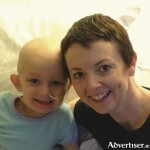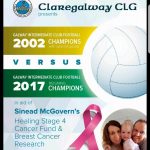52. Newly diagnosed? Here are my top 5 tips
Living with cancer is like living with any other chronic disease. It needs to be managed. How do you do that? With great difficulty, time, research, trial and error, testing, monitoring, trying, failing, trying again… It takes over your life, it is now your number one priority and if you do it right, you get to live with it rather than fight with it until it kills you. Cancer is not trying to kill you. It’s giving you a wake up call to make changes in your life. What those changes are depends on the person. But I can tell you one thing, if you don’t change anything, don’t expect it to go away!
If I was newly diagnosed, knowing what I know now, here’s five things I would do immediately.
- Research. Find out what type of cancer it is, how it behaves, what fuels it… Not all cancers are the same, surprisingly! I thought it was one disease that appeared in different parts of the body but that’s not the case. There are probably hundreds if not thousands of different cancers and they all behave differently. And guess what? You and I might have the same type but it will behave differently in my body to yours. Making it very hard to treat and very hard to know what works and what doesn’t. You can find out about your type from your hospital biopsy and what fuels it by researching on Pubmed. Knowing your cancer and your body is essential when it comes to treating it. How you treat it is up to you but knowledge is power.
- Testing. There are various tests available which can show which types of substances are effective against your type of cancer. Substances which can be tested for are cytotoxic drugs (chemo), targeted therapies, immunotherapy and natural extracts. Either blood or a biopsy sample are tested in a lab against hundreds of different substances and a report is generated to say which ones have the highest possibility of affecting cancer cells. I say affecting because different substances do different things from apoptosis (cell death) to anti-angiogenesis (blocking blood vessel building). The Greek Test can be a good place to start when it comes to testing. Oncologica also have a test for targeted therapies and it would be no harm in having your gut health tested to find any parasites or nasties which might be part of the cause of the disease in the first place or might be part of the solution. These tests should be standard in hospitals. Taking a shot in the dark is risky and it one of the reasons that survival rates (especially stage IV) are so appalling.
- Reduce toxic load. This goes for food, water, people, environment, home, work life, stresses… Get a good water source whether it’s a filter system or something else. Reduce toxins in food, eat organic, non-processed food. The body prioritises digestion over other functions and overloading the body with toxin heavy food is not only clogging up the system but it’s not allowing it to do massively important healing work. Working with a nutritionist experienced in cancer can help with getting diet right and a good homeopath can help strip the body of toxins it carries around. People… if there was ever a time to let toxic relationships go, now is it. Ask yourself if the people around you fill your cup or drain from it. Your cup is your energy and you need every bit of it for your body to heal right now so prioritise, let them go or at the very least create boundaries that work for you. Environment and home… what’s in your cleaning products, your make up, your toiletries, your toothpaste, deodorant? What do you wash your hair with? What kind of things are you spraying in your house or have you scented candles or plugs in the walls? All of these products are adding to your toxic load, your body doesn’t need this extra burden right now. Get rid of the bleach and shake’n’vac! Work life and stresses… stress can drive cancer growth, try to get it under control.
- Support network. Ask for help, accept help and be grateful for help. You’ll need it, it’s impossible to go this road alone. People are kind and just want the best for you but they might not always know what you need so don’t be afraid to tell them. Whether that’s a babysitter, help with housework or cooking or just to have some space, let them know.
- Investigation. What caused this? Where did it come from? How can you find out? Less than 5% of cancers are genetic so it’s probable that your cancer was caused from something else. Did you know that the HPV virus causes cervical cancer? What other viruses cause other types of cancer? Had you thought that was even possible? What about bacteria? Did you know that H-Pylori is related to stomach and oesophageal cancer? Were there any emotional traumas in your life that impacted you so badly that your body never recovered? Was heartache related to breast cancer? Was anger related to liver cancer? Do you find it hard to let go of your shit and did that cause colon cancer? There are reasons that cancer appears in the places it does, find out for yourself and then work on resolving the issues. This is one of the harder things to do because it needs some deep work with the help of a therapist or several therapists and practitioners. Things I have found useful were bio-energy, bio-magnetism, acupuncture, psychotherapy, counselling, reflexology, release therapy, shamanic healing, sound baths, reiki and kinesiology. I am still investigating and repairing. Still peeling the layers back to reveal more to work on. It is an ongoing journey of discovery and I don’t know where it will end but I’m invested and I’m going to see it through!
Please share with anyone you know who is newly diagnosed. Taking responsibility for your health is one of the keys to healing. Nobody else can do it for you. I wish it was that easy!
Join my Patreon community here for more on healing, experiences of treatment, healthcare systems, thoughts on mortality etc…



